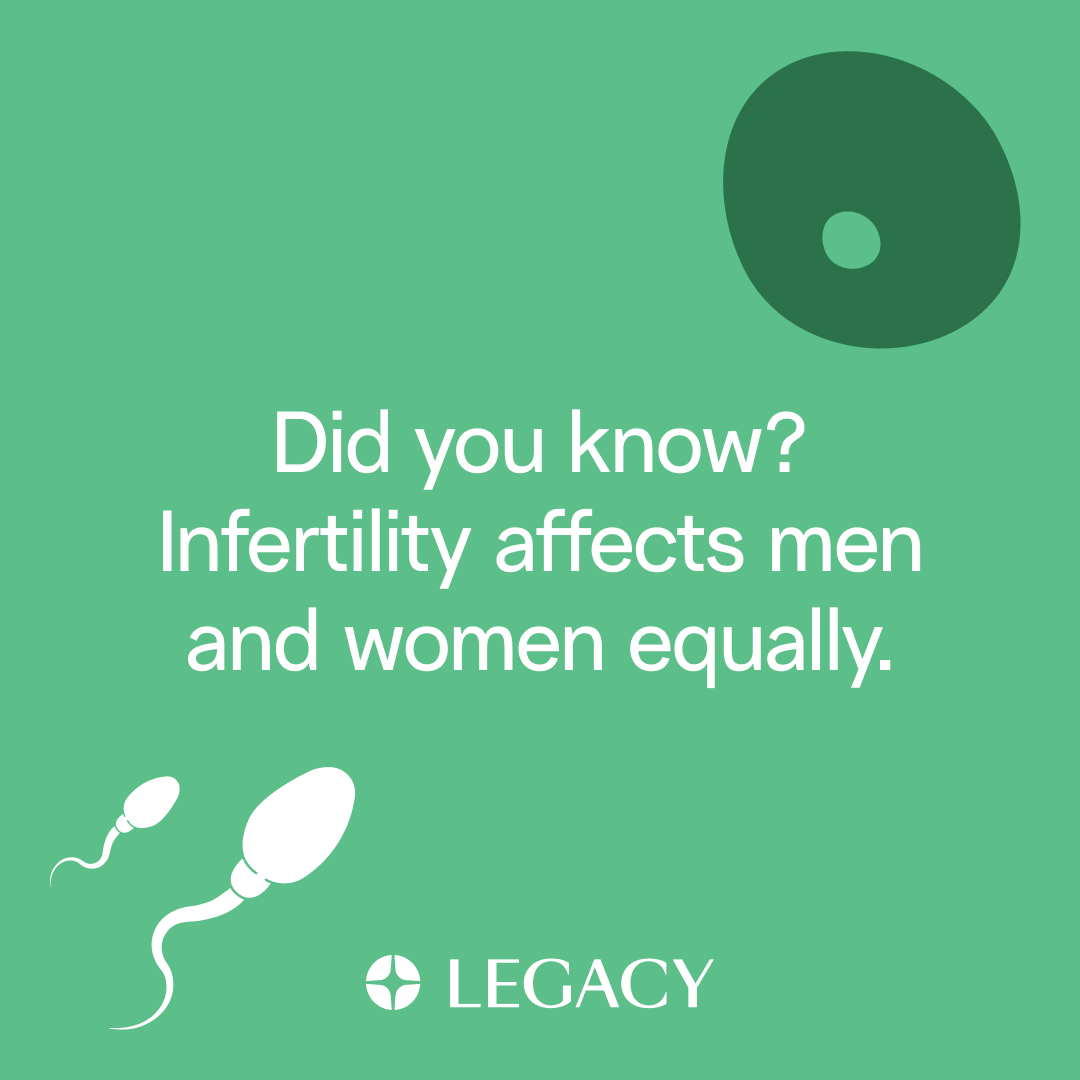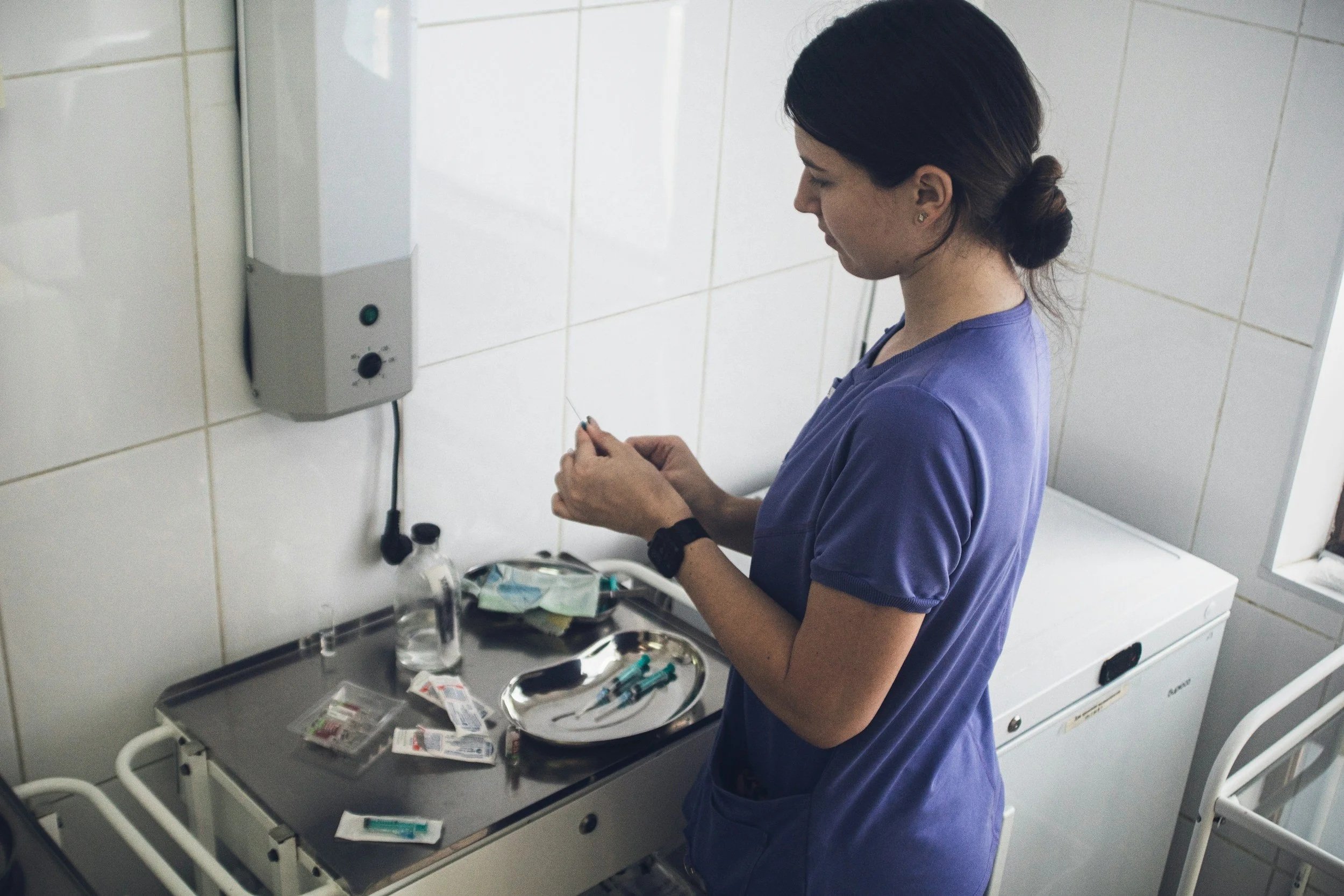With the abundance of food and changes in our physical activity routine compared to previous generations, being overweight in the U.S. is becoming increasingly common. In fact, 27.5% of adult women in the US are overweight, and an additional 41.9% are obese. It is therefore not surprising that many women considering fertility preservation treatments ask themselves if their weight would prevent them from successfully freezing their eggs.
The short answer to this question is “There is no standard BMI cut-off for egg freezing.” Despite potential complications associated with being overweight or obese, freezing eggs is generally still possible, and it might be medically advantageous compared to waiting for fertility treatments until a later age. A more complete answer to the question would be: “Some limitations exist depending on the clinic.” And here is why: Obesity, which is defined as a BMI > 30, does not prevent reproductive treatments, including egg freezing. It is, however, associated with several factors that could affect the quantity and quality of the eggs retrieved, as well as the risks associated with the process.
First, obesity impairs the ovarian response to the medication used to stimulate the ovaries, which means that higher doses of the medication would be needed. It also means that the number of eggs we can retrieve from a stimulation cycle would likely be lower. In addition, obesity might be associated with lower egg quality. Certain degrees of obesity may also be associated with additional challenges such as performing ultrasound monitoring during the cycle because the resolution of the image depends on the distance of the transducer from the ovaries.
Another issue to consider is the potential elevated risk during anesthesia and the oocytes retrieval process. These challenges in the egg retrieval process are related to the lower image resolution and the greater distance the aspiration needle has to go through. As a result, there is a worldwide debate regarding weight thresholds for fertility treatments. Some countries, such as the United Kingdom and New Zealand, did set such thresholds for women who use their national insurance for their egg retrieval cycle.
The American Society for Reproductive Medicine (ASRM) did not set a BMI threshold for clinics in the United States, arguing there was no medical or ethical directive to do so.
Fertility clinics in the US, however, are free to set their own BMI thresholds, and in light of the risks described above, many of them have. In fact, nearly 65% of fertility clinics that responded to a survey stated that they did have a formal policy for obesity. Of these, 84% of centers instituted a maximum BMI threshold, often in the range of 35-45 kg/m2 (obesity starts at 30 kg/m2, and severe obesity starts at 40 kg/m2). Since most egg retrievals in the US are done at an outpatient setting where the ability to treat complications is limited, the elevated risk related to high BMIs and anesthesia is a key factor in many clinics’ decisions to set BMI thresholds.
Being overweight or obese, therefore, may have implications related to the egg freezing process, and may limit the selection of centers where the process could be performed.

SAVE 15% with code FREEZEHEALTH on all Legacy products
It is important to note, weight is but one factor affecting the likelihood of successful egg freezing and should not be the only factor taken into consideration. Reduction of weight before egg freezing could help reduce risks and complications, and is therefore recommended. Other factors, such as age, are more significant to egg freezing success than body weight. With planned egg freezing, many women, even those with excess weight, can prolong the advantage of a younger age, and thus extend their reproductive window.
To summarize, high BMIs might be associated with several factors decreasing the likelihood of success of a person’s egg freezing journey, as well as increasing the potential risks associated with the process. Nevertheless, it is not an absolute reason to avoid egg freezing (subject to the specific clinic’s policy). It is therefore recommended that patients prioritize their health and safety when choosing to freeze their eggs, by aspiring for the best achievable weight and by finding a fertility program that can provide the best and safest care.

Dr. Ido Feferkorn is a reproductive endocrinologist at Reproductive Medicine Group in Tampa. He specializes in treating patients with infertility, PCOS, endometriosis and recurrent pregnancy loss. He also has a special interest in fertility preservation. Dr. Feferkorn’s research has been presented in international conferences such as the American Society for Reproductive Medicine (ASRM) and European Society for Human Reproduction and Embryology (ESHRE). Dr Feferkorn loves spending his free time with his wife and three kids. He chose REI because of the magic in seeing life created and accompanying the journey to parenthood.
Learn more about Reproductive Medicine Group’s egg freezing practice on Freeze.
Answered by Dr. Roy Handelsman from HRC Fertility. Understand how ovarian cysts and ovarian surgery may impact the egg freezing process.
Answered by Dr. Rashmi Kudesia from CCRM Fertility Houston. Here’s a checklist for before, during, and after your egg freezing consultation, including 11 questions you should ask the doctor.
Answered by Valerie Shafran, MSN, FNP-C from Extend Fertility. Discover why fertility experts urge women to stop taking GLP-1 agonists before an egg freezing cycle.
Answered by Dr. Nidhee Sachdev from South Coast Fertility Specialists. Explore what AMH tells us about a woman’s ovarian reserve or how many eggs she has left.
Answered by Dr. Hade from Generation Next Fertility. Understand how egg freezing does not cause long-term weight gain yet there is a chance of transient bloating.
Answered by Rijon Charne, JD from Sunray Fertility. Explore what a reproductive estate plan entails and the situations where having one can make a big difference.
Answered by Rijon Charne, JD from Sunray Fertility. Learn more about the importance of clinic disposition forms, including what they do and don’t cover.
Answered by Rijon Charne, JD from Sunray Fertility. Discover the legal nuances that can shape your options when freezing eggs or embryos.
Answered by Dr. Joshua Klein from Extend Fertility. Learn how birth control relates to egg freezing and if you will need to stop your hormonal birth control before starting the procedure.
Answered by Dr. Jesse Hade from Generation Next Fertility. Discover the important factors that affect chances of egg freezing success in your late thirties.
Answered by Sidonia Buchtova, PA-C, C-RHI from Refresh Psychiatry. Understand if you can stay on an SSRI or SNRI when freezing your eggs.
Answered by Sidonia Buchtova, PA-C, C-RHI from Refresh Psychiatry. Discover tips to help support your mental well-being during preparation, throughout the cycle, and after your egg retrieval, especially if you have a history of anxiety.
Answered by Dr. Katharina Spies from Vida Fertility. Learn about who should consider supplements before and during fertility preservation, and how supplements could support your egg freezing cycle.
Answered by Dr. Serin Seckin from Generation Next Fertility. Understand the key differences to help you make an informed decision that aligns with your personal and reproductive goals.
Answered by Dr. Ido Feferkorn from the Reproductive Medicine Group. Learn how Polycystic Ovarian Syndrome (PCOS) may affect the egg freezing process and outcomes of fertility preservation.
Answered by Dr. Meera Shah from Nova IVF. Understand the potential risks of egg freezing to help you evaluate if it is right for you.
Answered by Dr. Hade from Generation Next Fertility. Learn from start to finish the entire process of what happens on the final day of an egg freezing cycle.
Answered by Dr. Sahar M. Stephens from Northern California Fertility Medical Center. Understand the probability of pregnancy based on the number of eggs frozen and the age at which you freeze.
Answered by Dr. Alison Peck from HRC Fertility. Discover which medications are commonly used for ovarian stimulation during an egg freezing cycle.
Answered by Dr. Kathryn Snow from Piedmont Reproductive Endocrinology Group (PREG). Understand the side effects that you may experience when freezing your eggs.
Answered by Lia Schiller, MSN, AGNP-BC from Extend Fertility. Learn why IUDs can stay in place throughout the egg freezing process.
Answered by Dr. Woo from HRC Fertility. Learn how some medications need to be stopped for an egg freezing cycle while some medications can be continued.
Answered by Dr. Dan Nayot from The Fertility Partners. Learn how artificial intelligence is providing women with more information than ever before about their eggs.
Answered by Dr. Joshua Klein from Extend Fertility. Egg freezing doesn’t impact your chance of getting pregnant naturally, because egg freezing makes use of eggs that would otherwise have been lost.
Answered by Dr. Dan Nayot from The Fertility Partners. Understand the distinction between egg quantity and quality, and explore how AI is transforming egg quality analysis.
Answered by Dr. David E. Tourgeman from HRC Fertility. Understand what options exist for what to do with your frozen eggs if you decide not to use them for IVF.
Answered by Dr. Armando Hernandez-Rey from Conceptions Florida. Learn about minimal stimulation egg freezing cycles and how they can decrease the risk of ovarian hyperstimulation syndrome.
Answered by Dr. Ido Feferkorn from the Reproductive Medicine Group. Find out how egg freezing medications work and how protocols can be adjusted if you can’t take estrogen.
Answered by Dr. Ido Feferkorn from Reproductive Medicine Group. Learn how egg freezing fits into the menstrual cycle and how timing can be customized.
Answered by Dr. Elena Santiago from Vida Fertility. Understand the ins and outs of egg freezing in Spain as a non-resident, including timing, costs, and more.































